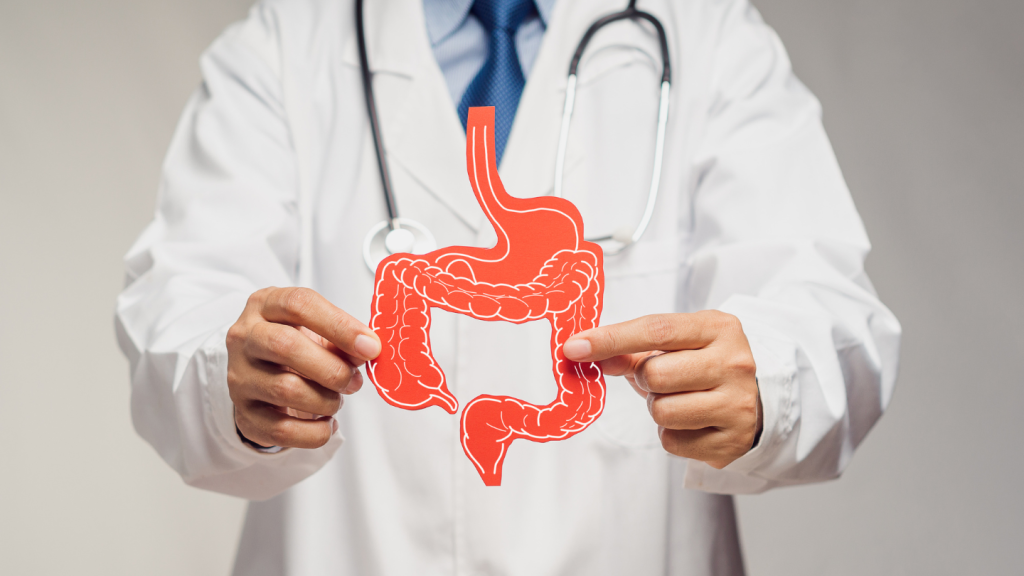
What’s the Link Between Acid Reflux and Gastric Bypass?
Bariatric surgery is widely regarded as one of the most effective treatments for severe obesity, offering dramatic improvements in weight and overall health. Yet, like any medical procedure, it is not without its potential side effects. For some patients, acid reflux after gastric bypass emerges as a concern during recovery or in the long term. While many experience relief from reflux symptoms following surgery, others may continue to struggle or even develop new symptoms.
Understanding why reflux can occur after gastric bypass, how it presents, and what steps can be taken to manage it helps patients feel prepared and supported throughout their bariatric journey.
Understanding GERD and Acid Reflux
Acid reflux occurs when stomach acid or bile flows back into the esophagus, producing a burning sensation often referred to as heartburn. When this condition becomes chronic or severe, it is classified as gastroesophageal reflux disease (GERD). Common GERD symptoms include regurgitation, chest discomfort, difficulty swallowing, and even chronic cough. Patients who want a deeper comparison between these conditions often benefit from reading about GERD vs acid reflux to better understand how symptoms and treatment strategies differ.
Obesity is one of the most significant risk factors for GERD because excess abdominal pressure makes it easier for acid to move upward into the esophagus. Gastric bypass is designed not only to promote weight loss but also to reduce this pressure, which in many cases lessens reflux. However, the relationship is not always straightforward. Reflux after gastric bypass can still occur, depending on both surgical and lifestyle factors.
How Gastric Bypass Influences Reflux

The Roux-en-Y gastric bypass (RYGB) is the most common form of gastric bypass. During this procedure, surgeons create a small stomach pouch and connect it directly to the small intestine, bypassing a significant portion of the stomach and duodenum. By reducing the size of the stomach and rerouting food, acid production decreases and reflux generally improves.
In fact, many patients with GERD after gastric bypass report marked relief compared to their pre-surgery condition. This is why RYGB is often recommended for patients who struggle with reflux before surgery. Still, not every patient experiences a perfect outcome. In some cases, gastric bypass acid reflux or indigestion after gastric bypass can appear due to factors such as bile reflux, surgical anatomy, or dietary choices. Some also want to know if future procedures, such as can you get a lap band after a gastric bypass, are possible when dealing with persistent symptoms.
Causes of Acid Reflux After Bariatric Surgery
There are multiple reasons why acid reflux gastric bypass complications can occur. Surgical changes may alter the way food and acid move through the digestive tract, creating new pressure dynamics. When pressure builds in the small stomach pouch, it can force contents upward.
Dietary triggers are another leading cause. Eating too quickly, consuming large portions, or choosing foods that irritate the digestive system, such as spicy meals, acidic foods, chocolate, or fried dishes, can worsen reflux.
Lifestyle habits like smoking, excessive caffeine intake, and alcohol use also increase the risk. In rare cases, anatomical complications like strictures, ulcers, or gastro-gastric fistulas contribute to persistent acid reflux after gastric bypass. Patients often ask can you get acid reflux after gastric bypass if the procedure is meant to reduce reflux, and the answer is yes. However, it is less common than with other weight loss surgeries, complications and habits can make reflux possible. Each of these scenarios underscores the importance of individualized medical evaluation and highlights how conditions like acid reflux after a gastric sleeve may present differently across bariatric procedures.
Read More: What Can You Never Eat Again After Gastric Bypass? Top 6 Foods to Avoid
Recognizing the Symptoms
The acid reflux after gastric bypass symptoms vary widely in intensity. Some patients notice only mild discomfort, while others experience daily pain that disrupts meals and sleep. Burning in the chest or throat, regurgitation of sour liquid, and bloating after eating are common indicators. A chronic cough, hoarseness, or difficulty swallowing may also appear when acid irritates the esophagus.
In some cases, patients experience severe heartburn after gastric bypass. This type of pain should never be ignored, as it may point to complications like ulcers or strictures. Prompt consultation with a bariatric surgeon is essential when symptoms persist or worsen despite lifestyle adjustments. Episodes of lingering heartburn may also raise concerns related to how long does heartburn last and when professional treatment is needed.
Read More: A Closer Look at Ulcer Management Post-Gastric Bypass Surgery
Comparing Procedures and Reflux Outcomes
Not all bariatric procedures affect reflux in the same way. RYGB typically reduces GERD symptoms because the rerouting limits acid exposure. Sleeve gastrectomy, however, is known to worsen reflux in many patients because it creates a high-pressure stomach tube. Adjustable gastric banding can also contribute to reflux by compressing the upper stomach and altering the natural flow of food.
This is why gastric bypass is often recommended for patients who already suffer from GERD. However, GERD after gastric bypass is still possible, and in some patients reflux may even return years later, highlighting the need for ongoing monitoring. Other digestive sensitivities, such as the connection between gluten intolerance and acid reflux, can further influence symptom patterns and dietary recommendations.
Potential Risks if Left Untreated

Ignoring reflux symptoms after bariatric surgery can have serious consequences. Prolonged acid exposure damages the lining of the esophagus, leading to inflammation known as esophagitis. Over time, scarring may occur, narrowing the esophagus and making swallowing difficult.
A more serious concern is Barrett’s esophagus, a precancerous condition in which the esophageal lining changes in response to chronic acid exposure. Patients with Barrett’s esophagus are at a higher risk of developing esophageal cancer. Reflux can also interfere with proper nutrition by making eating painful or uncomfortable, leading to reduced intake and possible vitamin deficiencies. For some, related throat irritation underscores the importance of recognizing the primary connection between acid reflux and sore throat to prevent chronic damage.
These risks make early treatment of reflux after gastric bypass surgery critical, rather than waiting for symptoms to resolve on their own.
Treatment Approaches
Treatment begins with lifestyle and dietary changes. Patients are advised to eat smaller, more frequent meals, chew food thoroughly, and avoid lying down immediately after eating. Identifying and eliminating trigger foods such as coffee, alcohol, chocolate, or fried meals can make a significant difference.
Medications often play a role in managing reflux. Proton pump inhibitors (PPIs) and H2 blockers reduce stomach acid production, while antacids provide short-term relief. In cases of bile reflux, different medications may be required.
If reflux persists despite medication and dietary changes, procedural interventions may be necessary. Endoscopy can help diagnose and sometimes treat structural issues. In severe cases, revisional surgery may be considered to correct complications contributing to reflux. Other specialized treatments, such as the LINX device or the Stretta procedure, may also be options in selected patients.
Preventing Future Problems
Prevention is just as important as treatment. Patients can reduce their risk of reflux by following post-surgery dietary guidelines closely, avoiding overeating, and eating slowly. Staying hydrated throughout the day without consuming large volumes of liquid during meals helps maintain proper digestive balance.
Quitting smoking and limiting alcohol intake support both digestive health and overall well-being. Regular exercise not only aids weight maintenance but also improves digestive function. Most importantly, patients should keep all scheduled follow-up appointments with their bariatric team, allowing early detection and management of any emerging issues.
Wrapping Up
Acid reflux after gastric bypass is a manageable but important consideration for bariatric patients. While most individuals experience reduced reflux thanks to the Roux-en-Y procedure, others may still develop GERD symptoms due to anatomy, diet, or lifestyle. Recognizing early signs, understanding the potential risks, and seeking timely treatment can prevent serious complications and help maintain long-term health.
With careful attention to diet, lifestyle, and follow-up care, most patients achieve relief and continue to benefit from the weight loss and health improvements that gastric bypass provides. If reflux continues to interfere with recovery or daily life, professional evaluation is the best next step. Ascension Saint Agnes Bariatric Surgery offers comprehensive solutions for patients dealing with acid reflux after gastric bypass, GERD after gastric bypass, and related concerns. With tailored treatment plans, ongoing follow-up, and a team committed to long-term success, patients can confidently move forward with their weight loss journey. Whether you require bariatric revision surgery, an upper endoscopy, gallbladder surgery, or are considering robotic surgery or a gastric balloon, our expert team is here to guide you every step of the way. Contact us today to learn more about how we can help you achieve lasting health and wellness.
Frequently Asked Questions
Can you get acid reflux after a gastric bypass?
Yes. While gastric bypass surgery often reduces reflux symptoms, some patients may still experience or develop reflux afterward. Factors such as bile reflux, dietary triggers, or anatomical changes can contribute to post-surgery reflux.
Why does acid reflux occur after gastric bypass surgery?
Reflux can result from changes in digestive anatomy, overeating, or consuming trigger foods. Smoking, caffeine, and alcohol can worsen symptoms. In rare cases, complications like ulcers or strictures may also play a role.
What are the common symptoms of reflux after gastric bypass?
Typical signs include burning in the chest or throat, regurgitation, bloating, or chronic cough. Severe heartburn, difficulty swallowing, or persistent pain should be evaluated by a bariatric specialist immediately.
How is acid reflux treated after gastric bypass?
Treatment includes dietary changes, avoiding trigger foods, and medications such as proton pump inhibitors or H2 blockers. Persistent or severe cases may require endoscopic evaluation or revisional surgery.
How can I prevent reflux after gastric bypass surgery?
Eat smaller, slower meals, avoid lying down after eating, and limit caffeine, alcohol, and fatty foods. Staying hydrated, exercising regularly, and keeping follow-up appointments with your bariatric team are key preventive measures.